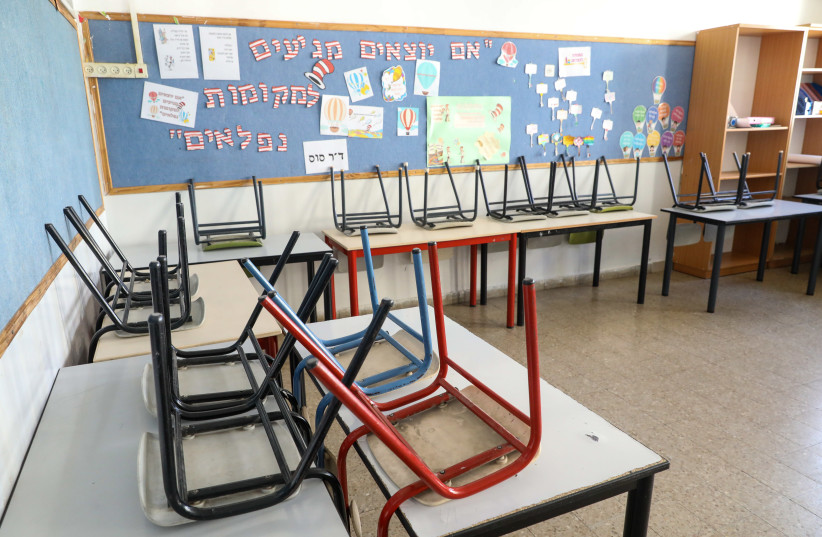For more than 20 years, the struggle to take control over Jerusalem’s educational institutions – and some will add, over the character of its different neighborhoods – is one of the more embarrassing expressions of power relations on the city council.
The basic notion is that there is a chronic lack of classrooms in the city for the three major sectors. However, in the Arab and the haredi sectors, the growth rate is much higher; therefore, they require much more preparation to have their needs met.
If until two decades ago or more this shortage was felt mainly in east Jerusalem and a little bit among the rest of the population, then today the acute shortage of classrooms exists mainly in the haredi sector, requiring a series of unacceptable solutions in a modern society – hundreds of pupils, mainly in the lower grades of elementary schools, studying in rented apartments and even in the parking lots of buildings and warehouses.
A recurring issue with no solution
In the Municipal Planning Department and at research institutions, especially the Jerusalem Institute for Policy Research, this is an issue that comes up every year, and no solution has yet been found.
In general, it can be said that the municipality, here as a kind of subcontractor for the Education Ministry (which is in charge of the budgets needed to build more classrooms), is not able to keep up with the population growth rate in the haredi and Arab sectors.

According to Education Administration data, about 300,000 students from all sectors in the city in 2021-2022 were in secular public schools (mamlachti) and religious public schools (mamlachti-dati), and more than 100,000 were in ultra-Orthodox institutions. Jerusalem has the largest education system in the country in terms of the number of students and in terms of teaching staff (more than 17,000).
During the summer of 2021, about NIS 470 million was invested in the construction, renovation and upgrading of the city’s educational institutions, where, among other things, 124 new classrooms were built with an investment of NIS 180m. About NIS 273m. was invested in the renovation and upgrading of dozens of schools and kindergartens throughout the city, with the aim of having modern and innovative learning conditions for the students and teaching staff. Also, during the school year, more than 200 individual accessibility elements were installed in the classrooms and kindergartens, which included audio, visual and physical adjustments in the buildings.
And yet, by the end of 2022, Jerusalem still lacked 4,000 classrooms in all sectors. Dozens of years of under-budgeting in face of a constant and significant increase in the number of children created an untenable shortage of classrooms (kindergartens and schools alike) in all sectors in the city.
Considering that the number of students in ultra-Orthodox education increased in the last decade by about 34%, clearly it seems that the city is running in a vicious cycle instead of progressing toward a viable solution.
And a quick glance at the growth forecasts for the ultra-Orthodox population spells out an almost tortoise and the hare situation. (Neveh Ya’acov increased from 58% ultra-Orthodox students in 2012 to 86% in 2022; Ma’alot Dafna went from 36% to 56%. In the Pat neighborhood, there wasn’t a single student from the haredi sector in 2015. Then in 2016, there was 24%, and this year there is 33%.)
This is a serious deficiency that requires an immediate solution.
However, in too many cases the solution promoted by Safra Square was to hand over educational buildings to the ultra-Orthodox sector that were formerly secular public or religious public schools that had a reduction in their number of students.
While it is true that parents understand that children shouldn’t be studying in parking lots while other schools only partially utilize their buildings due to a lack of students, the situation has made the general sector frustrated and even anxious.
This is exactly what is happening now with the attempt to hand over the Lady Davis Amal school building in Kiryat Yovel to the Bais Yaakov seminary, which is an institution that is not funded by the municipality. So far, the move has not been successful, with the liberal wing in Mayor Moshe Lion’s coalition obtaining from the courts at the very least a moratorium on the alteration.
But no one is disillusioned: Thousands of haredi students will not disappear from here, and they need an adequate and respectable solution. ❖
